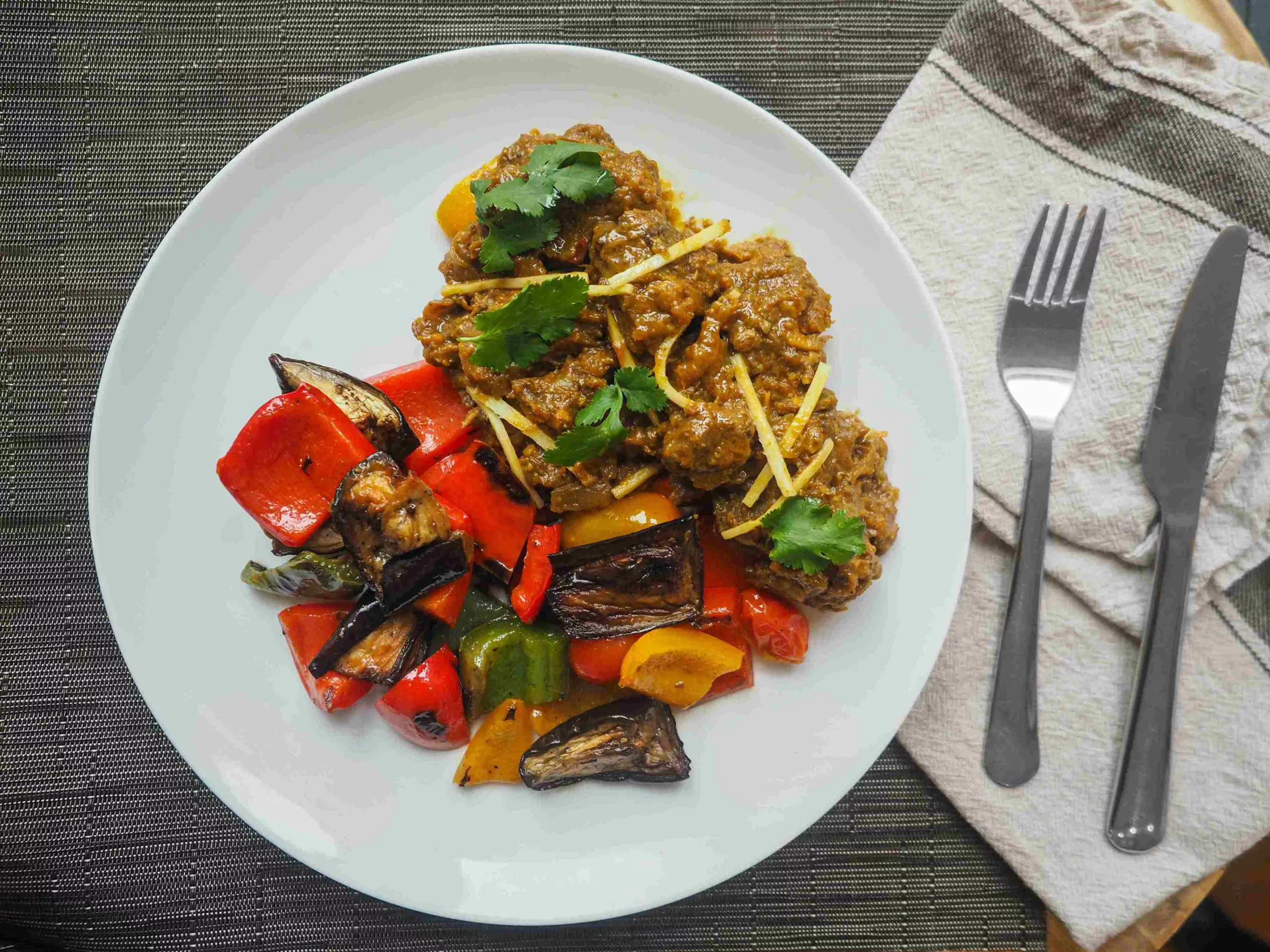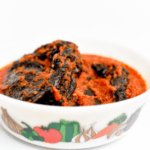Heritage of African Cuisine: Imagine being taken to the colorful streets of Lagos, the busy marketplaces of Marrakech, or the breathtaking scenery of Cape Town. Close your eyes and let the sounds of family laughing, the sizzle of grills, and the scents of spices flood your senses. We at Kabaia are excited to share our knowledge of the mouthwatering tapestry of tastes, colors, and traditions that is African cuisine with you.
We warmly welcome you to go on a delectable trip as we celebrate the rich and varied culinary legacy of African cuisine in this blog post. This tour of African cuisines promises to excite your taste buds and pique your interest, whether you are an African immigrant looking for a sense of home in the United States or Canada or a food aficionado wanting to broaden your foodie horizons. As we explore the tastes, ingredients, and traditions that make African food so distinctive, come along with us on this fascinating adventure.
The Diversity of African Cuisine


Africa is a continent with an incredibly diverse range of cultures, languages, and culinary traditions. Each region within Africa has its own distinct flavors and cooking techniques, resulting in a culinary landscape that is as varied as it is captivating. From the spicy and aromatic dishes of North Africa to the rich and flavorful stews of West Africa, the continent offers a cornucopia of culinary delights.
Staple Foods and Ingredients of African Cuisine
One of the fundamental aspects of any cuisine is its staple foods and ingredients, and African cuisine is no exception. Across the vast and diverse continent of Africa, a wide range of staple foods form the foundation of traditional dishes, while a captivating array of ingredients adds depth and flavor. In this section, we will explore the key staple foods and ingredients that make African cuisine so unique and enticing.
Staple Foods:
Grains
Grains are a staple in many African countries, providing a vital source of energy and sustenance. Common grains include millet, sorghum, maize (corn), and rice. These versatile grains are used in various forms, such as porridges, bread, and side dishes.
Tubers
Tubers are an essential component of African cuisine, offering both sustenance and culinary diversity. Yam, cassava, sweet potatoes, and plantains are popular tuber varieties found throughout the continent. They are used in various dishes, from stews to fries, and can be boiled, mashed, or fried.
Legumes
Legumes, such as beans, lentils, and cowpeas, are not only rich in protein but also play a crucial role in African cuisine. They are used to create hearty stews, soups, and side dishes, providing a nutritious and filling component to meals.
Vegetables
Fresh vegetables are a vital part of Africa’s cuisine, offering color, texture, and nutrition. Leafy greens like spinach, collard greens, and amaranth are commonly used, as well as okra, eggplant, and tomatoes. These vegetables are incorporated into a variety of dishes, providing both flavor and nutritional value.
Ingredients and Flavors:
Spices and Herbs
African cuisine is renowned for its bold and aromatic flavors, thanks to the extensive use of spices and herbs. From the fiery heat of chili peppers to the warmth of cinnamon and the earthy notes of cumin and coriander, spices create depth and complexity in African dishes. Herbs like basil, mint, and thyme add freshness and fragrance.
Palm Oil and Red Palm Paste
Derived from the fruit of the oil palm tree, palm oil and red palm paste are widely used in West and Central African cuisines. They impart a distinctive reddish color and unique flavor to dishes, enhancing their richness and depth.
Peanuts and Groundnuts
Peanuts and groundnuts are prevalent in various African cuisines, particularly in West Africa. They are used to make sauces, stews, and soups, adding a rich, nutty flavor and a creamy texture to dishes like maafe (peanut stew).
Fermented Foods
Fermentation is a traditional preservation method in African cuisine, leading to the development of unique flavors. Fermented foods like ogiri, iru, and kenkey are used to add depth and complexity to soups, stews, and porridges.
Indigenous Fruits
Africa is blessed with a diverse range of indigenous fruits, many of which find their way into traditional dishes and beverages. Baobab, tamarind, mango, and papaya are just a few examples of fruits used to create refreshing drinks, sauces, and desserts.
These staple foods and ingredients form the building blocks of African cuisine, allowing for a wide range of flavors, textures, and culinary creativity. They reflect the resourcefulness and adaptability of African cultures, as well as the continent’s rich agricultural heritage.
Regional Specialties of African Cuisine
Africa’s regional specialties are a testament to the continent’s diverse culinary heritage. In West Africa, dishes like egusi soup, suya (grilled meat skewers), and akara (bean fritters) showcase the bold and robust flavors of the region. Moving east, East African cuisine offers delicacies such as injera (a sourdough flatbread), pilau rice, and nyama choma (grilled meat).
North Africa, with its rich Mediterranean influences, presents a unique blend of flavors in dishes like tagines, couscous, and shawarma. Southern Africa, known for its game meats, offers biltong (dried cured meat), bobotie (spiced meat dish), and chakalaka (a spicy vegetable relish).
The Cultural Significance
Food holds immense cultural significance in African societies. It is not merely sustenance but also a means of celebration, social cohesion, and storytelling. Traditional gatherings and festivals are often centered around communal meals, where families and friends come together to share in the joy of food and community.
African Cuisine in the United States and Canada
For African immigrants living in the United States and Canada, the connection to their cultural roots is often maintained through the food they eat. Thankfully, the availability of African ingredients and the growing number of African restaurants and grocery stores make it easier to recreate authentic dishes. Whether it’s a plate of jollof rice, a bowl of egusi soup, or a taste of injera, African immigrants can savor the flavors of home.
Health Benefits of African Cuisine
African cuisine not only tantalizes the taste buds but also offers a range of health benefits. Many traditional African dishes incorporate a variety of fresh vegetables, legumes, and lean proteins, resulting in a balanced and nutritious diet. For example, dishes like mafe (peanut stew) in West Africa often contain a variety of vegetables and protein sources like chicken or fish, providing a good balance of nutrients.
Additionally, African cuisine often utilizes natural ingredients and minimally processed foods, which can contribute to a healthier lifestyle. The use of herbs and spices like turmeric, ginger, and garlic in African cooking also adds a dose of medicinal properties, such as anti-inflammatory and immune-boosting effects.
Exploring African Cuisine at Home
For those interested in exploring African cuisine, there are several ways to get started. One option is to visit local African restaurants, where you can taste a variety of authentic dishes and experience the vibrant flavors firsthand. Additionally, African grocery stores offer a wide range of ingredients, spices, and packaged products that allow you to recreate traditional recipes in your own kitchen.
Exploring online resources, cookbooks, and food blogs dedicated to African cuisine can also provide inspiration and guidance for preparing delicious African dishes. Don’t be afraid to experiment with different flavors and ingredients, as African cuisine offers a world of culinary possibilities.
Conclusion
African cuisine is a treasure trove of flavors, colors, and stories. It is a testament to the continent’s rich cultural heritage and its ability to connect people across borders. For African immigrants residing in the United States and Canada, exploring their culinary roots through traditional dishes can be a source of comfort, nostalgia, and a way to maintain their cultural identity. At Kabaia, we celebrate the diversity of African cuisine and invite you to embark on a culinary adventure that will tantalize your taste buds and nourish your soul.




